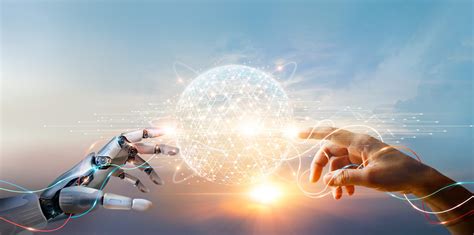In today's digital age, technology has become an integral part of our daily lives. While it has brought numerous benefits, such as increased connectivity and accessibility, it has also led to a sense of disconnection and isolation. However, a new wave of experiential technologies is emerging, aiming to revolutionize the way we connect with each other and with the world around us.
Experiential tech, also known as XR (Extended Reality), encompasses a range of technologies, including Virtual Reality (VR), Augmented Reality (AR), and Mixed Reality (MR). These technologies are transforming the way we interact, communicate, and experience the world, enabling us to connect with others in more immersive, engaging, and meaningful ways.
The Power of Immersive Storytelling

One of the most significant advantages of experiential tech is its ability to facilitate immersive storytelling. By transporting us into new and imaginative worlds, XR experiences enable us to connect with others on a deeper level, fostering empathy, understanding, and compassion. For instance, VR experiences can allow us to walk in someone else's shoes, literally and figuratively, providing a unique perspective on their lives and struggles.
Breaking Down Barriers
Experiential tech is also breaking down barriers and bridging gaps between people from different backgrounds, cultures, and geographical locations. By creating shared experiences, XR technologies can help to build connections and foster a sense of community, reducing feelings of loneliness and isolation.
For example, AR experiences can enable people to explore and interact with historical sites, cultural landmarks, and natural wonders, promoting cross-cultural understanding and appreciation. Similarly, MR experiences can bring people together in virtual spaces, facilitating collaboration, creativity, and innovation.
The Future of Education and Training

Experiential tech is also transforming the way we learn and train, making education more engaging, interactive, and effective. By providing immersive and hands-on experiences, XR technologies can enhance knowledge retention, improve skills acquisition, and increase learner engagement.
For instance, VR experiences can simulate real-world environments, allowing students to practice and learn complex skills in a safe and controlled setting. Similarly, AR experiences can bring textbooks to life, making learning more interactive and fun.
Enhancing Healthcare and Wellness
Experiential tech is also being used to enhance healthcare and wellness, providing new and innovative ways to diagnose, treat, and manage medical conditions. By creating immersive and interactive experiences, XR technologies can reduce stress and anxiety, promote relaxation and calmness, and improve overall well-being.
For example, VR experiences can help patients overcome phobias and anxieties, while AR experiences can provide personalized therapy and treatment plans. Similarly, MR experiences can enable healthcare professionals to visualize and interact with patient data, improving diagnosis and treatment outcomes.
The Future of Entertainment and Leisure

Experiential tech is also revolutionizing the entertainment and leisure industries, providing new and innovative ways to experience and interact with media, art, and culture. By creating immersive and interactive experiences, XR technologies can enhance our enjoyment and appreciation of music, film, theater, and other forms of entertainment.
For instance, VR experiences can transport us into new and imaginative worlds, while AR experiences can bring art and culture to life. Similarly, MR experiences can enable us to interact with virtual objects and characters, creating new and innovative forms of entertainment.
Conclusion
In conclusion, experiential tech is revolutionizing human connection, providing new and innovative ways to interact, communicate, and experience the world. By facilitating immersive storytelling, breaking down barriers, and enhancing education, healthcare, and entertainment, XR technologies are transforming the way we live, work, and play.
As this technology continues to evolve and improve, we can expect to see even more innovative applications and use cases emerge. Whether it's in education, healthcare, entertainment, or other areas, experiential tech has the potential to make a significant impact on our lives and our world.






What is experiential tech?
+Experiential tech, also known as XR (Extended Reality), encompasses a range of technologies, including Virtual Reality (VR), Augmented Reality (AR), and Mixed Reality (MR). These technologies are transforming the way we interact, communicate, and experience the world.
How is experiential tech used in education?
+Experiential tech is used in education to provide immersive and interactive learning experiences. VR experiences can simulate real-world environments, while AR experiences can bring textbooks to life, making learning more engaging and effective.
What are the benefits of experiential tech in healthcare?
+Experiential tech is used in healthcare to provide new and innovative ways to diagnose, treat, and manage medical conditions. VR experiences can help patients overcome phobias and anxieties, while AR experiences can provide personalized therapy and treatment plans.
